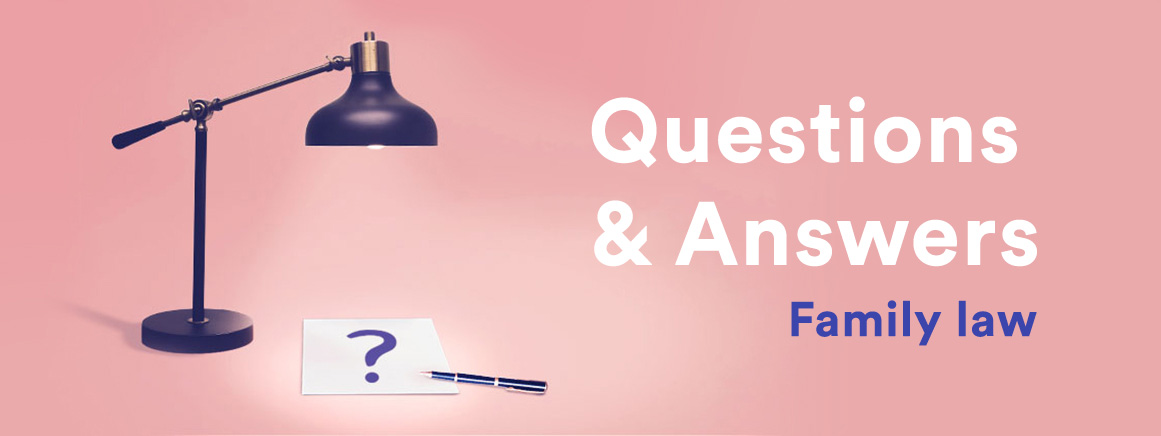
Can I take my child(ren) abroad without permission?
Can I take my child(ren) abroad without permission?
Often in the context of divorce, the same or similar questions are asked to lawyers. In this series of articles “The most frequently asked divorce questions” our family law attorneys will answer some of these questions.
Question:
I am divorced. Can I take my children on vacation abroad?
Answer:
The first rays of sunshine are behind us, so are the May vacations. This means that the summer vacations are already approaching. Many parents would like to take their children on vacation abroad during the summer vacations. But is this allowed after a divorce? It certainly is, but there are some things to take into account. I would like to list these issues.
Joint custody
Normally, after a divorce, both parents have joint parental authority over the children. This means that as parents you are the legal representative of your child and may make certain decisions for your child. You can think about the school (choice) for the child, but also whether the child should undergo medical treatment. Therefore, if parents have joint custody of the child, such decisions must be made by the parents together.
This also applies to staying abroad, such as for a vacation. So the first point of consideration for a vacation with child(ren) abroad is whether you and your (ex) partner have joint custody of the children? If so, you will need permission from the other parent to go abroad.
When do you have joint custody? If you and your ex were married, you actually have joint custody by default after divorce. If you lived together, then you will only have joint custody if during the relationship, or afterwards, you actually asked the court to establish joint custody. You can check this through your lawyer if you wish. They can see the custody register, which lists all child custody decisions, and thus see which person(s) have custody of a child.
Consent form
If the parents have joint custody, one parent must obtain the other parent’s permission to travel abroad. How can this permission be given?
A special permission form is available for this purpose. This can be downloaded from the central government website (click here for the form). The parent going abroad with the child must complete the form and then ask the other parent to sign it. Things that should be mentioned on the form are for example: the vacation destination, the place of stay and the duration of the vacation. By doing this, you also immediately ensure that the other parent is well informed about the upcoming vacation. After all, as parents with joint custody you are obliged to each other.
I will travel and take along
In addition to the consent form, there are several other things you should take with you when you go on vacation with your child(ren).
- At least an excerpt from the register of parental authority.
- A printout from the municipal personal records database.
- Possibly the birth certificate of your child. This shows who the parents are and who has parental authority.
- A copy of the passport/identity card of the other parent. This is because customs want to verify any consent form; more specifically: verify the other parent’s signature.
- Have phone number of the other parent available so that Customs can contact them themselves if required. Then also inform the other parent that Customs may call around the time of departure.
- Copy of the parenting plan (if any), especially if it includes arrangements for vacations and a copy of the return ticket so customs can also see that you are coming back home.
Sole custody
The above applies if two parents exercise joint custody. If you have sole custody of your children, you can of course go on vacation without permission. However, it is wise to bring an excerpt from the custody register, as mentioned above, so customs can see that you are the sole custodian. It is also advisable to bring an excerpt from the child’s municipal register of births, deaths and marriages, which also states that you have sole custody.
It is also possible that you exercise sole custody because the other parent has died. In that case, I recommend that you bring a copy of the deceased parent’s death certificate in addition to the above documents so that customs can verify this.
Older than 12: own proof of identity
Finally, it is important to note that children 12 years or older must have their own passport or ID card and carry it with them during the vacation.
Replacement permission
What if you do not get permission from the other parent while you have joint custody? In that case, you can ask the court for substitute consent. Substitute consent can be requested in summary proceedings before the court. It is therefore advisable to arrange for signed consent forms several months before you go on vacation. Should the other parent’s permission not be forthcoming, you still have enough time and opportunity – if you really must – to ask the court to grant substitute permission for the vacation.
With the above tips, you should have a great summer!
Still have questions?
The attorneys at TEN always consult with you to determine the best way to resolve matters. When it comes to vacations abroad, it is therefore important to talk to the other parent in good time about granting permission for the vacation. However, should it not be possible to come to a solution by mutual agreement, the lawyers at TEN can assist you. The first step will be to see whether consent can be obtained by mutual agreement. However, should this not succeed, we will of course gladly and resolutely assist you in summary proceedings to obtain replacement permission.
The most frequently asked divorce questions
Often in the context of divorce, the same or similar questions are asked to lawyers. In this series of articles “The most frequently asked divorce questions” our family law attorneys will answer some of these questions.
If you have a question you would like to see answered in the next ” The most frequently asked divorce questions“, please let us know!



